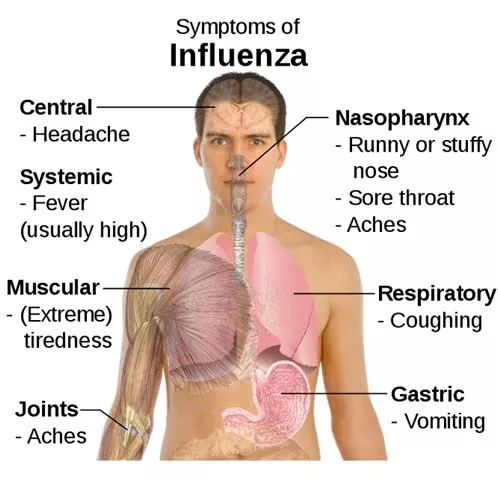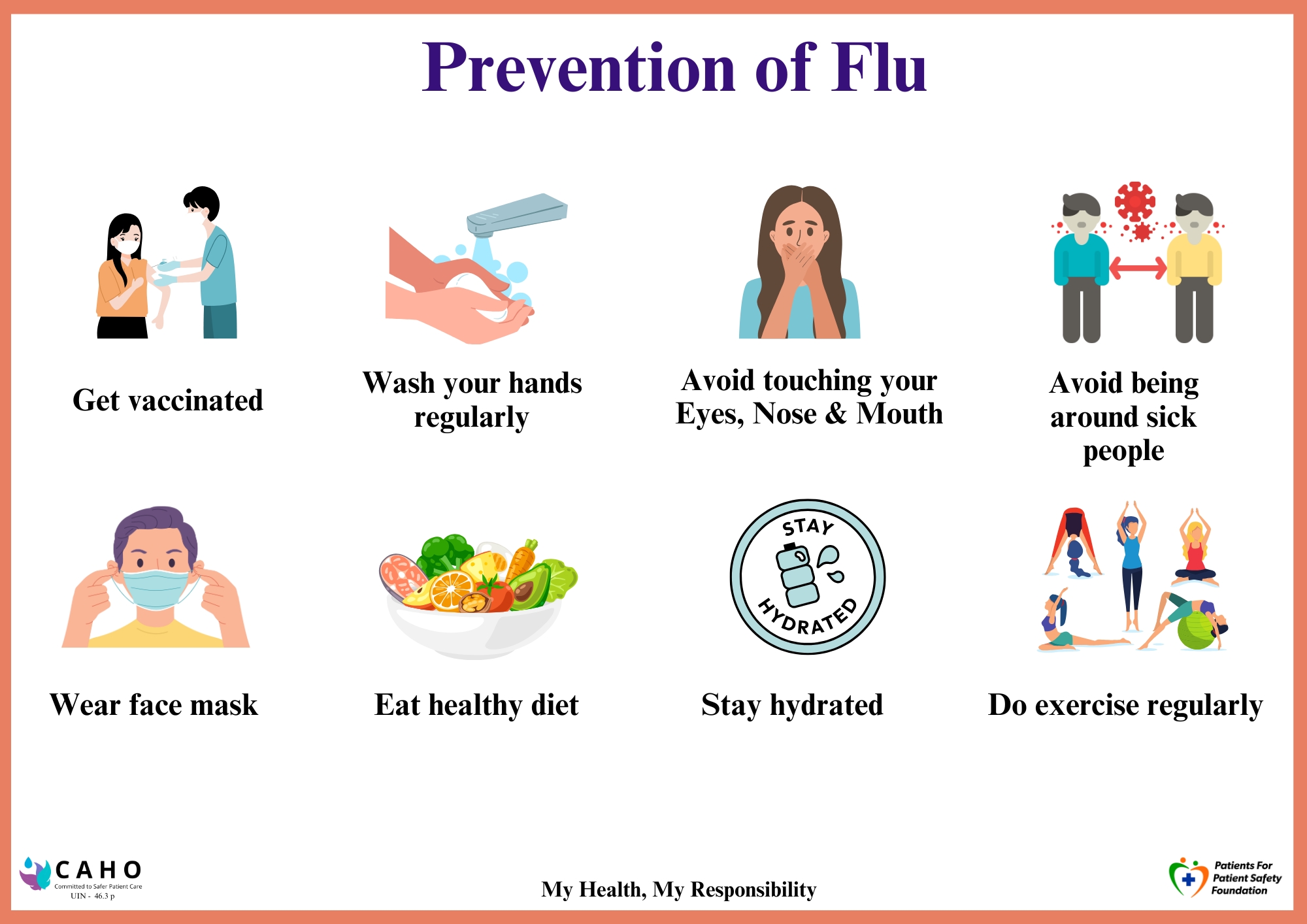
Influenza, usually called flu, is a viral infection that primarily affects the respiratory system. It spreads easily from person to person through tiny germs when an infected person coughs, sneezes or talks. Most people recover from the flu on their own.
The flu can cause mild to severe illness and can lead to hospitalisation or in rare cases even death. It is more common in the winter season. There are several kinds of influenza viruses and they all produce similar symptoms.
The flu virus itself can cause complications or it can weaken your immune system and allow bacteria to infect different parts of your body (secondary infection). Complications and secondary infections include:
Pneumonia is one of the most serious complications of the flu. For older adults and people with chronic illnesses, pneumonia can be life-threatening.
Symptoms of influenza usually begin around 2 days after being infected by someone who has the virus.
You may not have all of the symptoms. Fever and body aches often last for 3 to 7 days. But cough and fatigue may last for 2 weeks or more.

While anyone can get the flu, certain groups are at higher risk of developing severe illness. These include young children, elderly adults, pregnant women, individuals with weakened immune systems and those with chronic medical conditions such as asthma, diabetes, heart disease or obesity.
A combination of clinical evaluation (physical examination, medical history and symptoms) and laboratory tests are required to diagnose the flu. Doctors may conduct a Rapid Influenza Diagnostic Test (RIDT) using a swab from the nose or throat to find out the presence of influenza viruses. In special cases other tests such as a viral culture or Polymerase Chain Reaction (PCR) test may be necessary for confirmation.
People who get the flu can treat themselves at home by taking rest, plenty of fluids and over-the-counter pain relievers to minimise the severity of flu symptoms, shorten the duration of illness and reduce the risk of complications. If symptoms are severe you should consult with a doctor.
Preventing influenza usually involves vaccination, good hygiene practices and avoiding close contact with infected individuals. Vaccinations are normally given each year between September - November and should be taken by all in the family. (Click here to read more - Why do Adults need Vaccinations)

With preventive and supportive measures, individuals can protect themselves and others from the impact of the Flu.